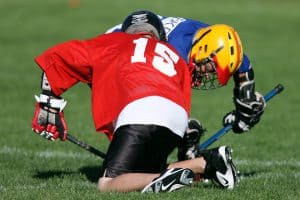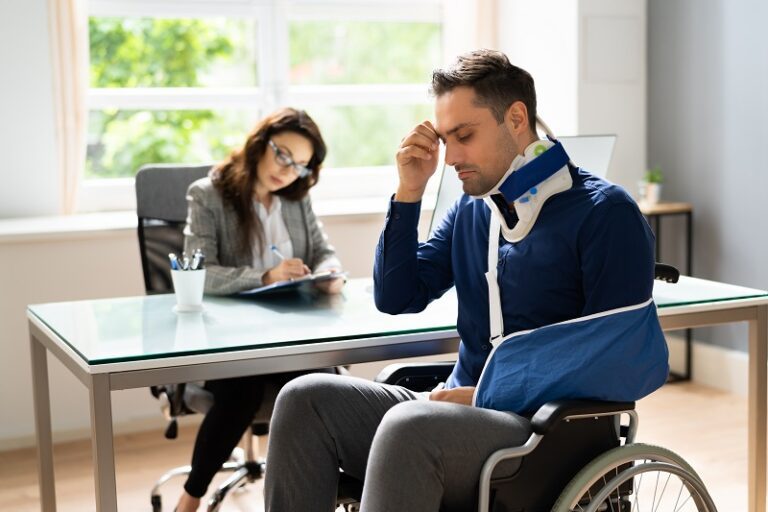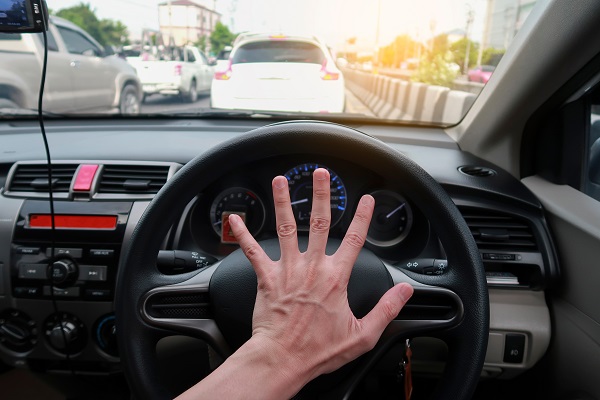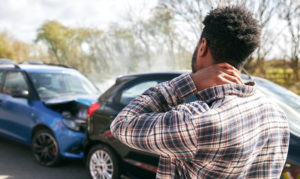Table of Contents
 The dark side of contact sports is exemplified by CTE, short for chronic traumatic encephalopathy. Numerous sports superstars and everyday people alike who’ve participated in contact sports suffer from CTE. This tragic brain disease is what happens if you play sports with a concussion.
The dark side of contact sports is exemplified by CTE, short for chronic traumatic encephalopathy. Numerous sports superstars and everyday people alike who’ve participated in contact sports suffer from CTE. This tragic brain disease is what happens if you play sports with a concussion.
Sustaining successive brain injuries throughout the course of play puts one’s health at long-term risk. Such brain injuries typically take the form of repeated microtrauma or multiple concussions. The moral of this sports story is it is prudent to remain sidelined until the brain fully heals following even the slightest head injury.
Brain Injuries Suffered Outside of Play
Football and hockey players are not the only people to suffer concussions. Concussions, also referred to as traumatic brain injuries of the mild variety, also occur in competition and training. A TBI can be sustained upon impact with any force, when falling, or when colliding with a person or object.
Regardless of whether the individual in question is a professional athlete, construction worker, or everyday person, the health impact of a concussion can be devastating. In particular, kids, tweens, and teens are especially vulnerable to TBIs, including their lifelong consequences.
Can an Injured Brain Heal?
Indeed, it is possible for a damaged brain to heal. However, rest is necessary for this organ to return to normal or a semblance of normal. Though treatment modalities for head and brain injuries continue to improve, rest is the only reliable means of healing an injured brain. There is no sense in immediately returning to the playing field after suffering a concussion. A premature return to play can lead to a crippling or fatal injury.
TBIs Caused by Contact Sports
TBIs, short for traumatic brain injuries, often result from force applied to the head. The movement of the brain within the skull has the potential to lead to brain tissue tears or bruises. It is also possible for swelling or bleeding to occur in the brain. A moderate or light blow, penetration, or jolt to the head can lead to a mild TBI, referred to as a concussion.
Contact sports are still popular as we transition through the early 2020s yet they are consistently to blame for TBIs. In particular, hockey, football, and lacrosse are most likely to lead to a TBI. The brave athletes who participate in these high-contact sportswear pads and protective headgear to absorb the impact of play. However, professional athletes in all contact sports and even some non-contact sports suffer TBIs. Helmets certainly mitigate the impact of forceful blows to the head yet they are not 100% effective at preventing injury.
Though certain sports such as football and rugby have a higher likelihood of TBI occurrence than other sports, solo activities such as golf or even gymnastics can lead to a head injury. As an example, wayward golf shots or stepping into another golfer’s swing path can lead to a concussion. Tennis players run the risk of slipping or tripping and then falling onto the court whereupon the head hits the hard surface of play. A gymnast can easily suffer a concussion with a missed dismount or by simply performing tumbling runs.
Use your mind’s eye to envision a soccer game. Two players colliding with one another or simply heading the soccer ball for a redirection can easily cause a concussion. Moreover, America’s pastime of baseball also poses the risk of concussion when batting, fielding, and even sliding headfirst into bases.
Most athletes are competitive to the point that they refuse to remain sidelined after a concussion. Some athletes won’t report their symptoms in an attempt to maximize playing time. However, hiding a concussion or returning to the field of play too soon after a head injury has the potential to cause lifelong health problems.
The Symptoms of a Concussion
It might take some time for the signs of a concussion to become apparent. In some instances, a concussion is mistaken for a different injury. There is even the potential for the symptoms of a concussion to manifest and then dissipate for a lengthy period of time.
The saying “what is out of sight is out of mind” is applicable to concussions. It is not possible to view the human brain without brain-scanning equipment such as an MRI machine. A visit to the doctor’s office will be necessary to formally identify the symptoms of a concussion. If you or anyone you know suffers a head injury, seek such medical guidance as soon as possible.
Though the athlete might not report his or her head injury, there is a chance that medical personnel or non-medical personnel will notice one or several symptoms of a concussion. Ideally, play will stop and the injured player will be promptly removed from the field of play for medical analysis.
Aside from losing consciousness, short-term memory loss and confusion are common signs of a concussion. Others feel nauseous, dizzy, imbalanced, and highly sensitive to noise or light. Moreover, concussions can alter or blur vision, cause a ringing in the ears, and change one’s behavior.
The manifestation of even one of the concussion symptoms listed above is an indication that medical analysis is necessary. Analysis reveals those who return to the field of play while concussed extend the length of time necessary to recover from a concussion. An early return to play also elevates the risk of a subsequent concussion that has the potential to lead to permanent impairment or an even worse outcome.
Concussions by Type
Similar to TBIs as a whole, concussions have degrees of severity. Though each concussion varies by impact, it takes merely one concussion to cause a lasting negative health outcome. If you even slightly suspect you’ve been concussed or spot someone who exhibits the signs of concussion, seek prompt medical treatment. Resist the temptation to return to action while concussed or otherwise injured.
Guidelines for Playing After Suffering a Concussion
The days of returning to the field of play after being concussed are long gone. Though some athletes do a good job of hiding their concussion symptoms, most sports are transitioning to a new era in which observing even a slight sign of a concussion results in a collective pause so the concussed individual can be removed from the game for medical analysis. However, there is no specific timeline for returning from a concussion or other head injury. Each concussion is its own idiosyncratic injury that requires ongoing medical evaluation.
The specific guidelines for returning to play after a concussion differ by sport. However, most team coaches, doctors, and other decision-makers abide by the CDC’s recommendations that advise the prompt removal of a player after demonstrating a symptom of concussion. The best post-concussion outcomes almost always result from a conservative approach in which the athlete demonstrates gradual progression toward a return to baseline health.
A Brain Injury Attorney Can Help
The aftermath of a brain injury is a difficult period of time. Even a slight misstep in terms of treatment can lead to a lifelong health problem. Meet with a sports concussion injury attorney to discuss your brain injury or that of a loved one and a path will be paved to hold negligent entities and people accountable. In some cases, multiple entities are guilty of negligence in that they failed to properly prepare the surface of play or provide prompt medical attention after the injury.
Medical professionals who ignore the symptoms of a concussed athlete are also negligent. Failing to follow the protocols for evaluating a head injury and treating it in a timely manner also creates a solid foundation for a personal injury lawsuit.
A brain injury lawyer will help obtain financial compensation, proving the negligence of one or several other parties using evidence, eyewitness testimony, and other forms of documented evidence. The sports concussion injury attorney is responsible for piecing together the puzzle of the injury, establishing a causal relationship between one or several parties’ negligence and the concussion or other head injury. The best attorneys present compelling evidence highlighted by a convincing legal strategy that paves a path toward a lucrative settlement offer or favorable judgment.
Rest easy while your brain injury attorney interacts with opposing counsel, insurers, organizations responsible for the field of play, and other relevant parties. If necessary, your personal injury attorney will advocate on your behalf in a court of law. Though there is no guarantee of a settlement offer or favorable court judgment, if it is proven there is a causal relationship between a party’s negligence and the injury, the chances of obtaining financial compensation are quite high.
The bottom line is you should not have to pay for medical care or any other expenses related to the sports injury if another party’s negligence caused or contributed to that injury.
FAQs
Why should an athlete see a doctor after taking a blow to the head?
Continued participation in athletics after a blow to the head can lead to a permanent brain injury and eventual death. The brain, head, and neck are highly sensitive after injury, necessitating prompt medical review and treatment for the optimal long-term health outcome.
Can you play sports with a concussion?
Though it is possible to play sports while concussed, doing so is not advised. If the symptom of a concussion or other head injury is observed, the athlete should be pulled from competition for immediate medical evaluation. If such an evaluation is delayed or skipped, another blow to the head could cause a severe traumatic brain injury.
What happens if you play sports with a concussion?
Playing sports while concussed can lead to long-term brain damage. Moreover, the concussed athlete is unlikely to be effective on the field of play after suffering a concussion as he or she will likely be dizzy, suffering from blurred vision, and incapable of fully comprehending the surrounding environment.
How long should you wait after a concussion to play sports?
The timetable to return to action after a concussion differs by individual and context. In general, it is risky to return to the field of play until receiving formal clearance from a credentialed medical professional. A mere superficial analysis of the injured player performed by a coach or team trainer will not suffice. When in doubt, err on the side of caution by remaining sidelined until a doctor provides a clean bill of health.
What are some things you shouldn’t do when you have a concussion?
Concussed athletes and others should refrain from engaging in sports, exercise, or physical labor. Remain indoors with the lights on at a low setting. Minimize sensory stimulation during the ensuing period of recovery. Refrain from driving a motor vehicle, drinking alcohol, listening to music, and engaging with other forms of sensory stimulation such as video games.
Connect With a Brain Injury Attorney Right Away
Your health comes first after suffering a concussion or other sports injury. Once you’ve received medical attention, document that experience with medical reports and receipts. The next step is to contact an attorney and schedule an initial consultation to review your unique case.
Our sports brain injury lawyers are here to help victims like you. If you or a loved one have suffered a concussion that was not properly treated or if you were forced to return to the field of play after a head injury or other injury, ask for help. Our legal team will hold negligent parties accountable for their failure to provide due care.
Reach out to us today at 619-237-3490 to schedule a case review.







